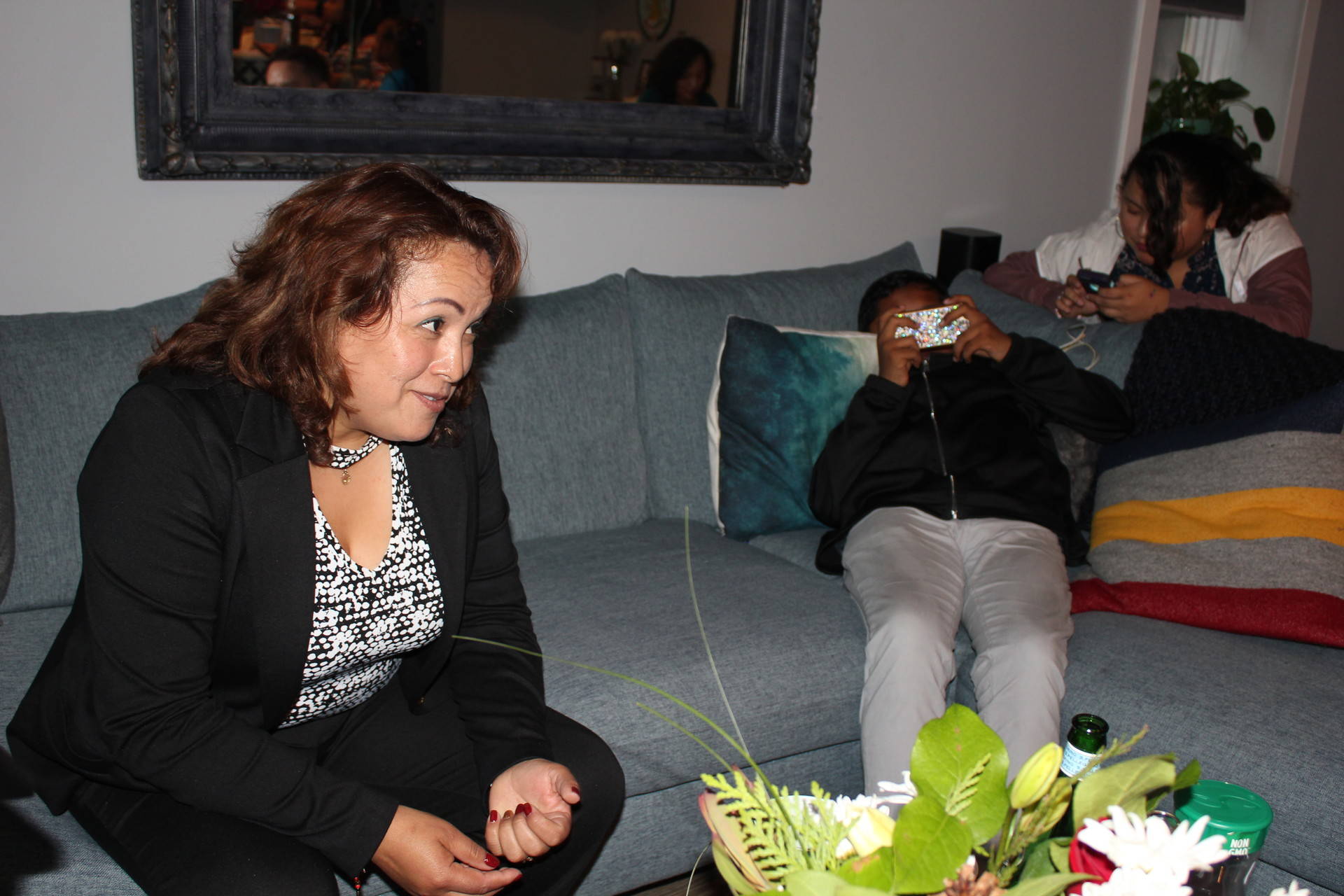In 2011, a judge ruled that Maria and Eusebio couldn’t prove their children would suffer enough hardship to justify giving them legal residency. But under Obama-era priorities that favored keeping families intact, they were granted stays of deportation and continued work permits.
But last spring, the two were told that they would be deported in 90 days as part of the Trump administration’s crackdown on undocumented immigrants.
“This is really an example of why California’s vision of immigration reform is the just way, and why the Trump administration’s crackdown is just cruel and inhumane,” said Camiel Becker, Mendoza-Sanchez’s lawyer. “They say they’re going after all those Mexican rapists and criminals and ‘bad hombres,’ but they’re really deporting some of these badass mujeres like Maria, who are contributing members of society and actually give more than 95 percent of citizens out there, but are being deported because of this ‘no discretion, deport everybody’ policy.”
When Maria and Eusebio were deported, their four children — ages 13 to 24 — stayed in the U.S. living together at the family’s home in Oakland. Maria parented from afar, talking to her kids regularly on the phone.
From Mexico, Maria applied for the visa lottery, and she was one of 65,000 people selected. Normally, having previously entered the country illegally would have barred her from receiving a visa, but her work as an oncology nurse earned her a waiver for high-skilled workers, and she was granted an H-1B visa.
Mendoza-Sanchez says she can’t wait back to get back to work, and her workplace seems equally thrilled. Public Affairs Director Terry Lightfoot of Alameda Health Systems, which includes Highland Hospital, said her coworkers think of her as extended family and are excited to have Mendoza-Sanchez back on the job in the coming days.
“It affected her patients, it affected her coworkers because of the wonderful spirit she brought to the job,” Lightfoot said of Mendoza-Sanchez’s deportation. “So it was very difficult for the organization to witness her having to leave her children, and to experience what was happening to her.”
Mendoza-Sanchez can renew her new work visa for 6 years, after which point there may be ways to extend her legal presence for 10 years until she becomes eligible for a green card.
For now, she said she now plans to work on securing a visa for her husband, who is still in Mexico, and helping her daughters pursue their master’s degree.
“It’s the best Christmas present anyone could ever ask for,” said Melin Sanchez, Maria and Eusebio’s second oldest daughter. “There’s nothing else that we would want.”

